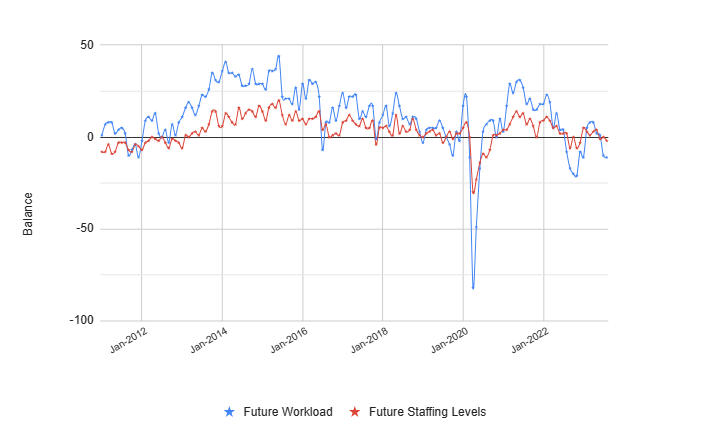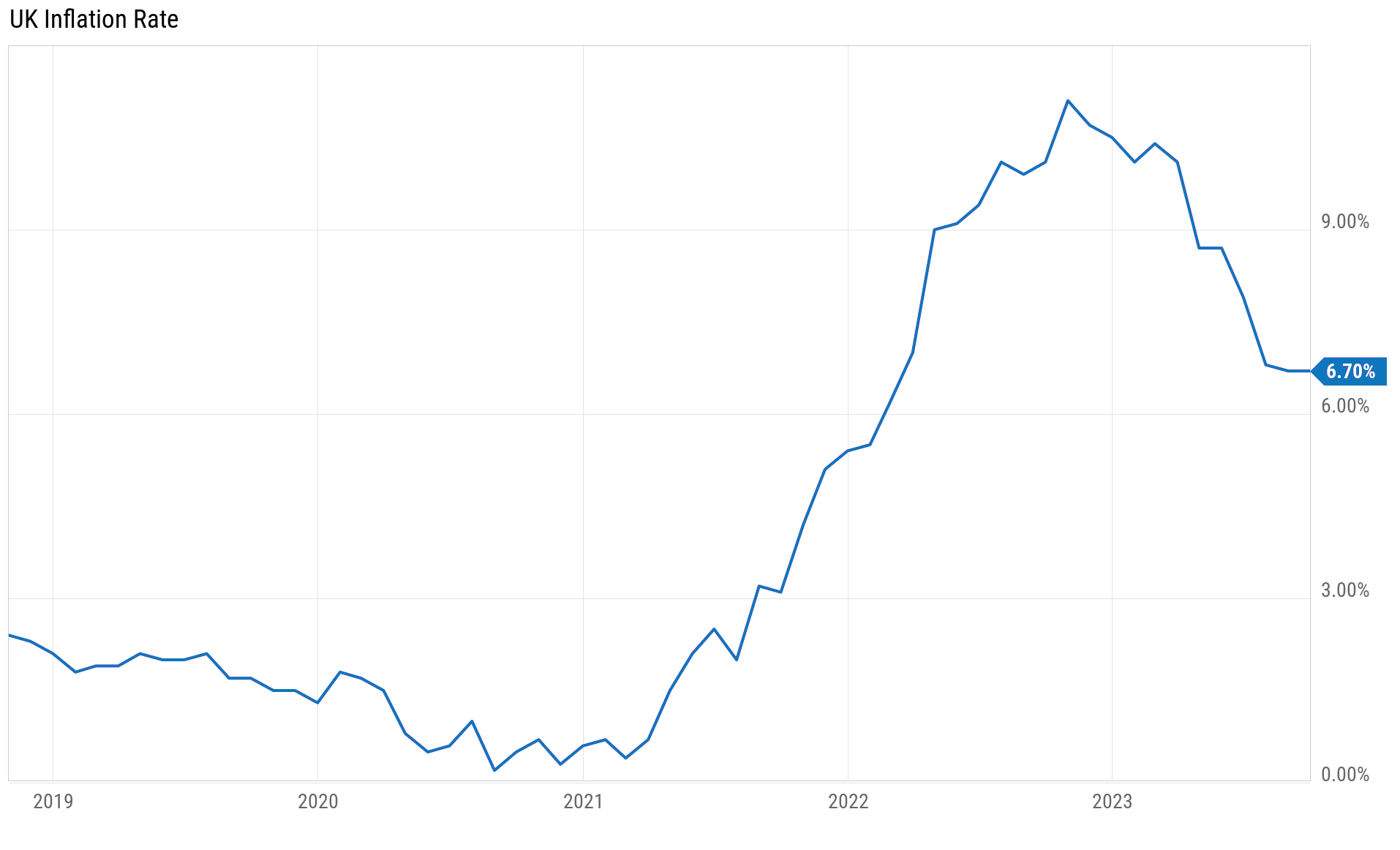Back in September 2022, with everyone predicting a recession, Liz Truss launched her economic plan to revive the economy. Unfortunately, the billions of pounds of tax cuts were unfunded leading to a crisis in confidence of the UK Government and a dramatic devaluing of the pound. Inflation, although already rising rapidly during 2022, peaked at 11.1% in October. In order to bring down inflation, interest rates increased sharply to 5.25% making the costs for people remortgaging or buying their first home substantially higher and having a very negative effect on the housing market. According to the latest results of the RIBA Future Trends Survey, the private housing sector is showing a figure of -23, a decline of 10 points since August and its lowest level since the first Covid lockdown.

The much-predicted recession of the last year has thankfully so far been avoided but with the Bank of England trying to maintain the delicate balancing act of bringing down inflation without increasing interest rates too far, the chances of the UK entering a recession are still high. Commenting on the latest PMI data, Chris Williamson, Chief Business Economist at S&P Global Market Intelligence said:
“The UK economy continued to skirt with recession in October, as the increased cost of living, higher interest rates and falling exports were widely blamed on a third month of falling output. The overall pace of decline remains only modest, signalling a mere 0.1% quarterly rate of GDP decline, but gloom about the outlook has intensified in the uncertain economic climate, boding ill for output in the coming months. A recession, albeit only mild at present, cannot be ruled out.”
There have been successes, however, as inflation has decreased significantly to 6.7%, and it is hoped that interest rates may not have to rise any further.

The direct impact of the financial woes of the last year on the architectural market for many firms has been stark. For practices who had specialised in the housing market, this has been a particularly tricky period and across all sectors, most of our clients have reported difficulties in maintaining progress on projects. The stop-start nature of architecture has made it very challenging for firms to plan for the future and employ the right number of staff for an ever-changing number of live projects. The unusual situation at the moment is that firms looking to recruit are often finding it surprisingly difficult to find the right people at the right salary. Although last year, according to our salary survey, salaries increased by around 6%, this year firms appear to have resisted substantial wage increases and set limits for new staff. To gain a better picture of the current situation, we are currently running our 2023 Architectural Salary Survey. If you haven't already done so and have a spare moment, we would be delighted if as many people as possible could complete this confidential survey and we’ll then email you a copy of the final report. (We’re especially looking for more responses from Wales, Northern Ireland and the North East as well as Level 6 Architectural Apprentices.)
Although some of the economic news above sounds a little bleak, if a recession does occur, it appears likely to be very mild and nothing like 2008/9 or the horrendous periods during lockdown. We are still receiving regular jobs and some areas like the luxury sectors are quite buoyant. Some of our latest roles can be seen below:
LONDON
- Exceptional design architects for new London studio – c.£45,000 https://bit.ly/3U7zDbG
- Director for 30 strong studio – c.£75,000 https://bit.ly/3CO7HlV
- Job running Architect with listed building experience c.£45,000 https://bit.ly/46pEqee
- Very design-orientated, contemporary, private residential architect – c.£45,000 https://bit.ly/3OpnFJI
- Design Team Manager – c.£50,000 https://bit.ly/3J3iEDW
- Experienced Interior Designer – AJ100 studio https://bit.ly/45Zy1FU
- Design Managers – £40,000 - £50,000 https://bit.ly/3LW31PQ
- Project Architect – c.£45,000 https://bit.ly/46jXUkd
- Senior Design Managers – £50,000 - £60,000 https://bit.ly/3LW31PQ
- Expert Witness https://bit.ly/3Rxlns3
SUSSEX
HAMPSHIRE